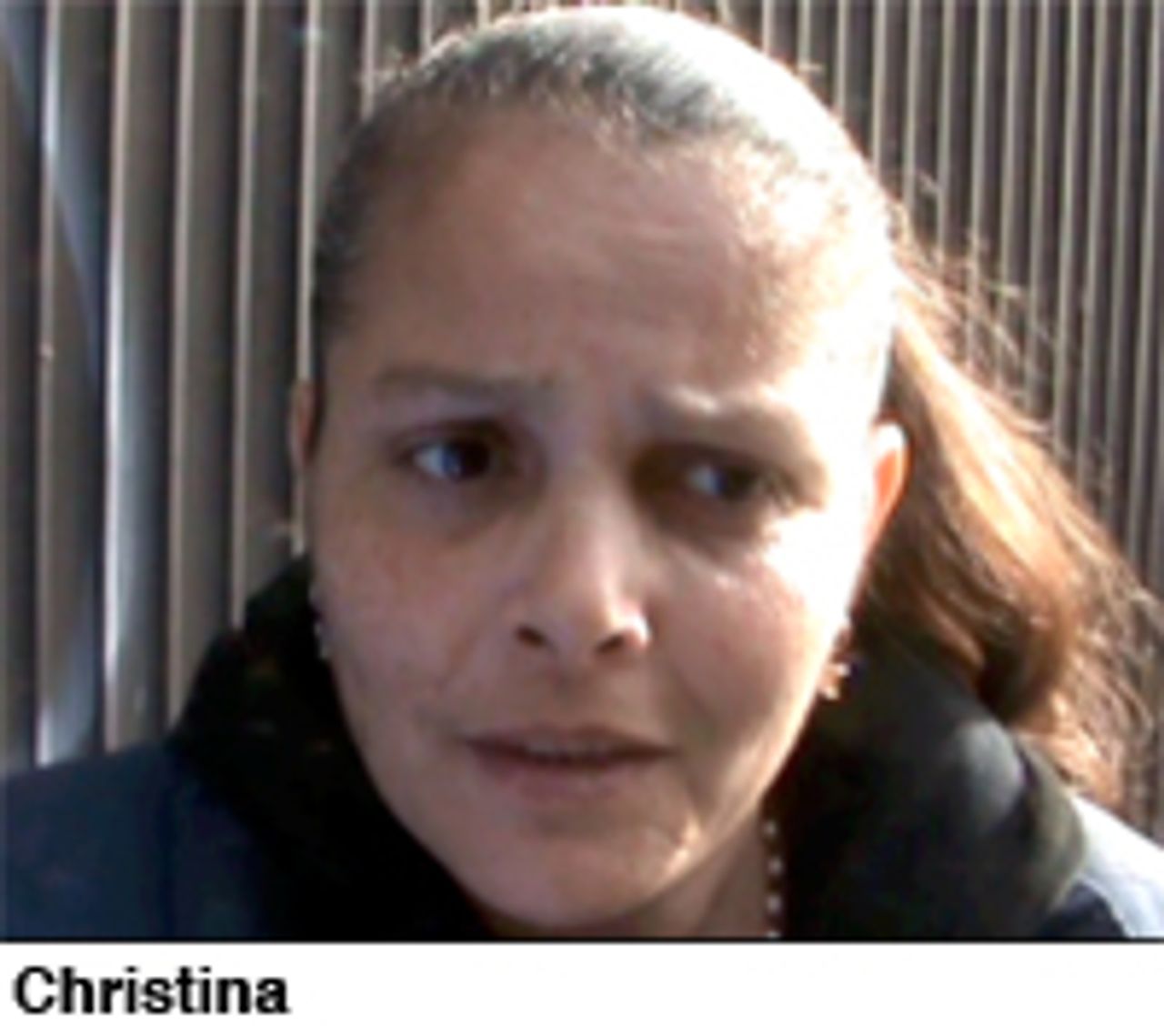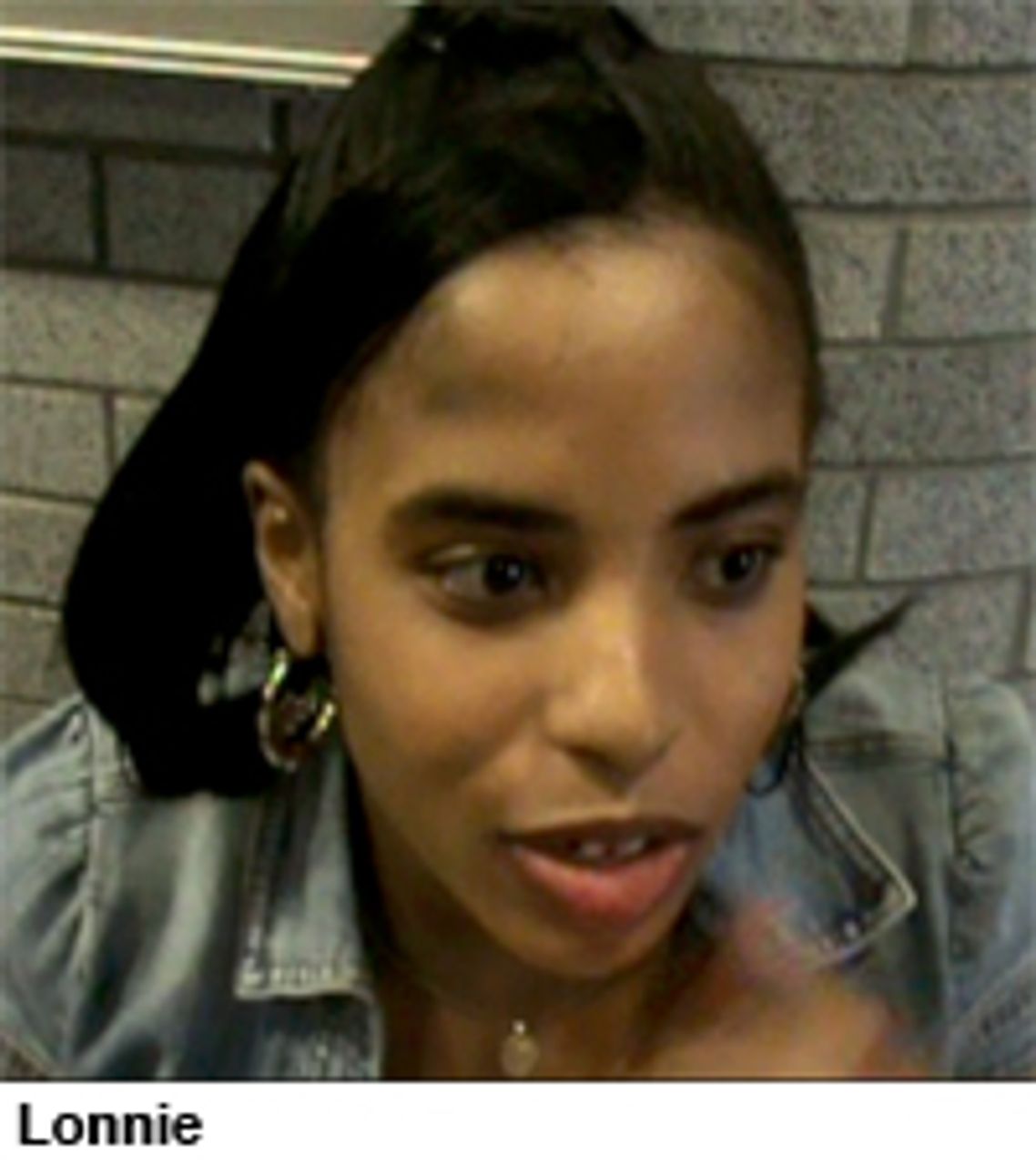The World Socialist Web Site recently spoke to workers and students around New York City about the impact of the economic crisis on their living conditions and their views on bailout of the banks by the federal government.
The WSWS spoke to people who were paying their utility bills at the National Grid office in downtown Brooklyn. The lines were long, and the atmosphere was fraught with a mixture of anxiety, boredom, and frustration. Many people were paying their bills in person so that their utilities would not be shut off. Some of the most recent statistics show that in September, more than 9,000 New Yorkers had their utilities shut off, a 13 percent increase over the same period in 2007.
Mrs. Goodman, a conductor for the New York City Transit Authority for 12 years, said: “The utility bills are getting higher and higher. I am here to pay both National Grid for my gas and Con Ed for my electric. I am a renter, and pay for the gas for my stove.
“The electric bills are really hurting me. It has gone up about 30 percent over the recent years. I am still able to pay the bills, but I have friends that who have fallen seriously behind. The price of food is going up, especially for items like bread and milk. Due to the fact that the price of gas has gone up, I drive my car less and less. I just fill up my tank when I get paid every two weeks.
“The bailout is for the rich. When their companies go bankrupt, they still get their bonuses, and we are the ones who have to pay for it. When we go bankrupt, nobody helps us out. For the foreseeable future, it will get worse for us.”
A housekeeper, Mrs. Xavier, told us: “I just paid my gas bill, and I came here to get my receipt as proof that I paid. I have fallen behind more than once, and I just use gas for my stove. I also had trouble paying the light bill. More than once, I have had to tell them please do not turn off the lights because I need more time to pay.
“In addition to utilities, the price of food is too high. When I go shopping, I have to make sure that I have a list and stick to it, because if I go over that list, then I will have paid more money than I can afford. I had to give up my car about seven years ago. I had a good driving record, but despite that, the cost of insurance was just too much for me.
“Fortunately, I live in a city where there is public transportation, but the problem is that the fare is too high. It might be $2 a fare, but it adds up, and my money just goes like that. After they just raised the fare, they are talking about raising it again. I also pay a lot for my rent for just one person. I am constantly thinking about how to save money.”
At the unemployment center
We also went to the unemployment center nearby, a grim, dirty building. It houses agencies that deal not only with unemployment benefit applications, but with other necessary social services, such as food stamps and other forms of public assistance. Many people said that they could not speak with us as they were leaving because they were too angry or upset at what they had just experienced inside.
We stopped a young man, an immigrant from Africa, and asked him to tell us about his life. He said that that he was homeless and desperate for work.
“Some people run and go back to their country. Me, I have no place to go. This is my country. Now I’m staying at the Bowery Mission. You can stay there as long as you call first. If you don’t call, you can’t stay. They give us food two times a day. But it’s not just food I’m looking for. I want to have my own family. I want to have my own house and my own car.
“I know that if I have a good job, I will work hard. Now I get nothing but temporary jobs. I don’t want to hear the world ‘temporary.’ I want a full-time job. They pay me $7.75 an hour. I need a $10 or $12 an hour. Everything is expensive now. If I want to cut my hair, it’s $15.”
We also spoke to Christina as she left the building. “I’m unemployed right now,” she said. “But I have my GED [general equivalency diploma]. I live with my partner of 32 years and my son. My son’s working right now. He works for a messenger service, six days a week. He works very hard and he gets paid very, very little, barely $200, $300 a week, depending on how busy it is.
“You feel overwhelmed sometimes. I sure do. I pray to God every day that things will work out. I am somebody that wants to work, but doors don’t open.”
 We asked Christina what she thought about the government bailout of the billionaires.
We asked Christina what she thought about the government bailout of the billionaires.
“It’s amazing how they want help from the government, and meanwhile there are a lot of ordinary people that need help. I’m not well educated in what’s going on, but I know that something’s not right. Who is [the bailout] really going to benefit? What happens to the people who don’t miss a day of work, who go in sick?”
At City College
We visited the City College of New York in Harlem and spoke to students in the Student Center about unemployment, the cost of tuition and living standards in New York City. Nearly everyone we spoke to was angry and disturbed at the living conditions in New York.
 We asked Lonnie from the Bronx what she thought of the vote by Democrats and Republicans in the State Assembly to cut funds for the state and city higher educational systems.
We asked Lonnie from the Bronx what she thought of the vote by Democrats and Republicans in the State Assembly to cut funds for the state and city higher educational systems.
“I think it’s really unfair because a lot of students are getting financial aid as it is,” she said. “Many families can’t afford to pay for education, and it sets a lot of people back. People are having problems with rent and high prices. There’s a big recession happening. It’s not going to benefit anybody to increase tuition.”
Alex, a student from Brooklyn, told us, “At an educational facility, they should make it easier for us, not harder. Books can cost over $100 a piece already. To go to CUNY [City University of New York], people have to take loans out. That used to be unheard of. It’s a city university.” When asked about the role of the Democrats and Republicans in voting for cuts in education, Alex said, “It’s politics, it’s the rich taking money from you and me because they have the power. The rich are getting richer and the poor are getting poorer. It’s a wider gap.”
